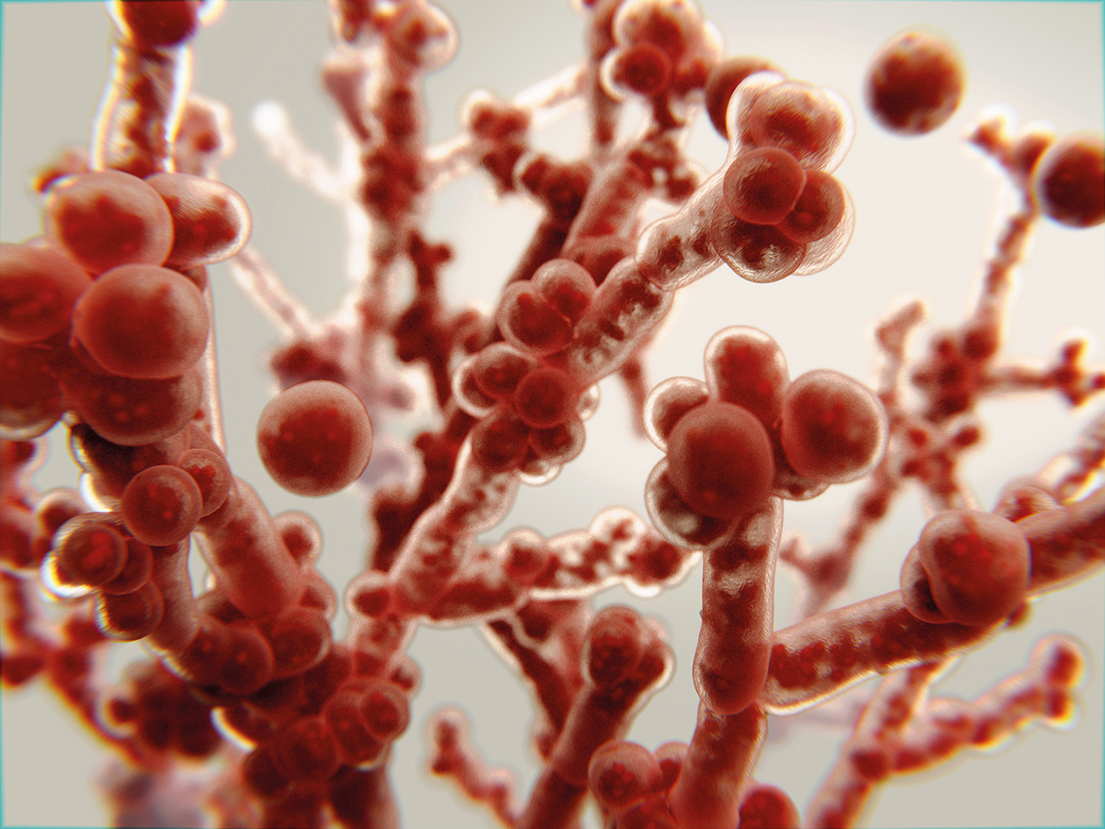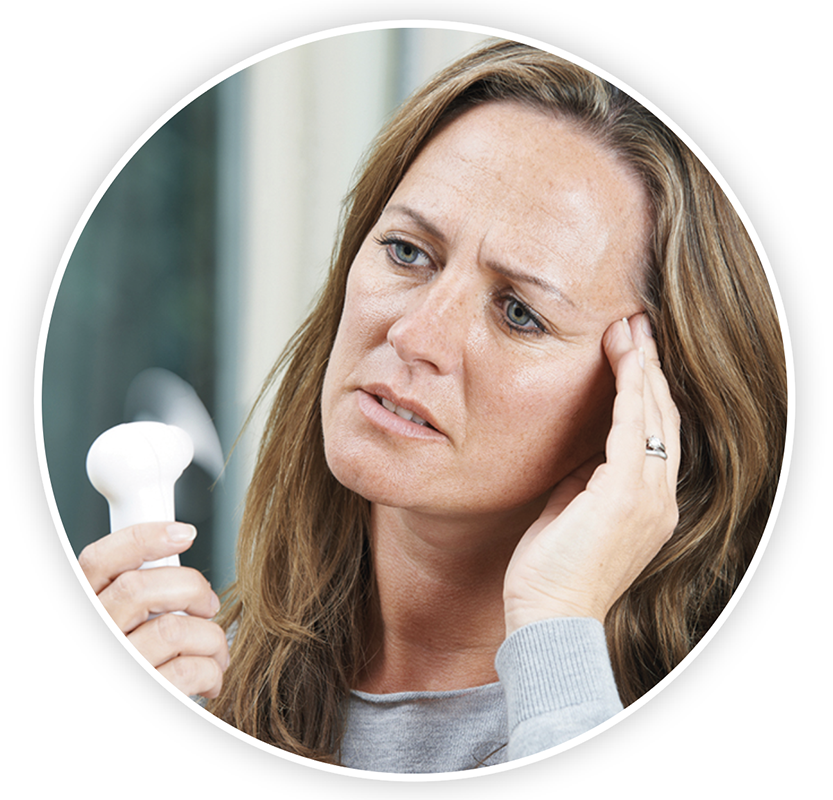
Read the information below to learn more about common women's health problems.
Vaginal thrush1
Vaginal thrush is a yeast infection caused by a fungus called Candida (usually Candida albicans). This lives harmlessly in the vagina and doesn't generally lead to symptoms. However, if the balance of bacteria changes, it can cause Candida to multiply, resulting in vaginal thrush. This is most common in women when stressed, taking antibiotics or pregnant.
Symptoms of vaginal thrush include:
- Redness, irritation and itching around the vagina and vulva
- A white discharge that can look like cottage cheese (this does not usually smell)
- Soreness or stinging during sex or when having a pee.
Treatments for thrush include creams or pessaries containing an antifungal drug such as clotrimazole or a capsule to be swallowed containing fluconazole. Thrush should usually clear up within seven to 14 days of starting treatment. You should refer customers under 16 years or over 60 years, who are pregnant or have recurrent thrush to the pharmacist. These customers may need to see their GP or midwife before using any treatments.
Bacterial vaginosis (BV)2
BV is caused by a change in the natural balance of bacteria in the vagina. About half of women with BV don’t have any symptoms, but for those that do, the most common symptom is an unusual vaginal discharge that has a strong fishy smell, especially after sex. Vaginal discharge may also become greyish-white or thin and watery. BV doesn’t usually cause soreness or itching and can be treated with antibiotic tablets, creams or gels prescribed by a GP, sexual health clinic or the Boots Online Doctor Service.
You can provide lifestyle advice to help relieve BV symptoms and prevent BV returning, such as having showers instead of baths, using water and unperfumed soap to wash their genital area and not using strong detergents to wash underwear.
Cystitis3
Cystitis is a common type of urinary tract infection (UTI) in women; mild cases often get better by themselves within a few days.
Symptoms of cystitis include:
- Needing to pee more frequently and urgently than normal
- Pain, burning or stinging when peeing
- Urine that is cloudy, dark or strong smelling
- Pain low down in the abdomen
- Feeling generally unwell, tired and achy.
Women don’t always need to see a GP if they have cystitis; however, they should be referred to their GP if symptoms don’t start to improve within three days, they are pregnant, they get cystitis frequently, or if they have severe symptoms, e.g. blood in their urine, fever, a pain in their side or generally feeling unwell.
To help relieve their symptoms, you can advise women to:
- Take painkillers such as paracetamol or ibuprofen
- Drink plenty of water as this may help flush the infection out of the bladder
- Hold a hot water bottle on their stomach or between their thighs
- Avoid sex as this may make their symptoms worse.
Menopause4
 The menopause is a natural part of ageing and usually occurs between the ages of 45 and 55 years. It is caused by a change in the balance of a woman’s sex hormones. Periods usually start to become less frequent over a few months or years before they stop completely.
The menopause is a natural part of ageing and usually occurs between the ages of 45 and 55 years. It is caused by a change in the balance of a woman’s sex hormones. Periods usually start to become less frequent over a few months or years before they stop completely.
Women may experience menopausal symptoms; for some women, these can be quite severe and have a huge impact on their everyday life. Common menopausal symptoms include:
- Night sweats
- Hot flushes
- Vaginal dryness
- Difficulty sleeping
- Low mood
- Reduced sex drive.
Women can help alleviate some of their symptoms by using a vaginal lubricant or moisturiser to help with vaginal dryness, eating a healthy, balanced diet and exercising regularly as healthy lifestyle choices may help improve some menopausal symptoms.
If a woman is concerned about their symptoms, you could advise them to speak to their GP.

Nutrient advice5
Women can have differing nutrient needs at different stages of their lives.
Menstruating women need more iron – 14.8 mg per day aged 19 to 50 years compared with 8.7 mg/day when aged over 50 years.
Pregnant women or women trying for a baby are recommended to take a 400 mcg folic acid supplement daily until they are 12 weeks pregnant. Folic acid helps to prevent neural tube defects, such as spina bifida, in babies.
Calcium can help reduce the risk of osteoporosis. This is particularly important in later life.
All adults, including pregnant and breastfeeding women, should consider taking a vitamin D supplement containing 10 mcg vitamin D in the autumn and winter months. Vitamin D helps regulate the amount of calcium and phosphate in the body. These help keep bones, teeth and muscles healthy.
Following a healthy, balanced diet and maintaining a healthy weight can reduce the risk of diseases such as diabetes. Dietary fibre is also important for gut health, and a high fibre diet can reduce the risk of bowel cancer and heart disease.
1. https://www.nhs.uk/conditions/thrush-in-men-and-women/
2. https://www.nhs.uk/conditions/bacterial-vaginosis/
3. https://www.nhs.uk/conditions/cystitis/
4. https://www.nhs.uk/conditions/menopause/
5. https://www.nutrition.org.uk/healthyliving/lifestages/women.html?showall=1
References last accessed July 2021.
